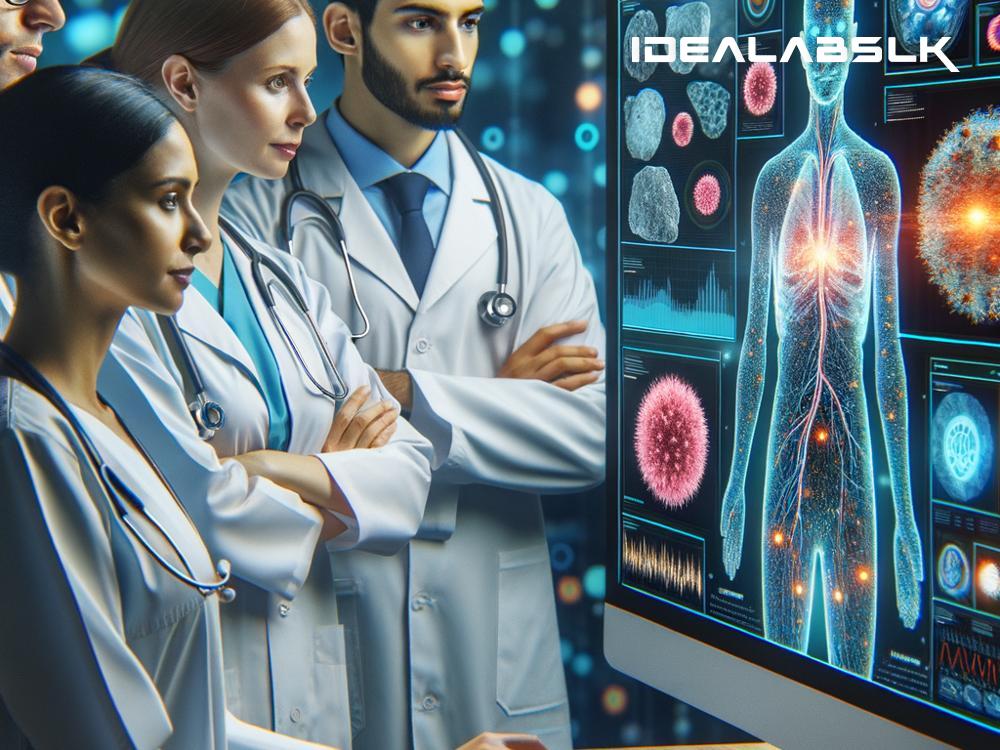How Healthcare AI Tools Are Improving Cancer Diagnosis: The Latest Innovations in Oncology
In the world of medicine, there's been a significant buzz around Artificial Intelligence (AI) and its ability to transform how we diagnose and treat various health conditions. Among the many fields it's making a mark is oncology, the study and treatment of tumors or, in simpler terms, cancer care. The latest innovations in AI are not just exciting; they're revolutionizing how we detect, diagnose, and even predict the occurrence of cancer, potentially saving countless lives through earlier intervention. Let's explore how these AI tools are making a difference in the fight against cancer.
Early Detection is Key
Early detection increases the chances of successful cancer treatment significantly. However, spotting cancer early is often challenging because symptoms may not be apparent until the cancer reaches more advanced stages. This is where AI steps in, with tools designed to pick up on subtle cues that the human eye or traditional methods might miss.
For instance, AI algorithms can analyze images like mammograms with exceptional precision, identifying even the tiniest changes that could indicate the presence of cancer. This technology is not merely about spotting known signs of cancer; it's also about uncovering patterns that humans are unable to perceive, offering a chance to detect cancer far earlier than currently possible.
Evolving Diagnostic Precision
Diagnosis involves not just detecting cancer but understanding its type, stage, and other characteristics critical for choosing the best treatment approach. AI tools are being trained using vast amounts of data, including genetic information and microscopic images of tissue samples, to recognize the specific features of different cancer types.
By integrating this information, AI systems are helping doctors diagnose cancer with greater accuracy. This precision is crucial because a one-size-fits-all approach doesn't work in cancer treatment. The more accurately a cancer can be diagnosed, the more tailored and effective the treatment plan can be.
Predictive Abilities for Personalized Care
One of the most groundbreaking aspects of AI in oncology is its predictive capabilities. AI algorithms can analyze data from a patient's genetic makeup, lifestyle, and environment to predict their risk of developing certain types of cancer. This isn't about predicting the future in a crystal ball; it's about identifying risk factors and patterns that could lead to cancer, allowing for preemptive measures to prevent cancer from developing in the first place.
Moreover, AI is helping in predicting how a patient might respond to various cancer treatments. By analyzing historical treatment data along with individual patient data, AI tools can help doctors customize treatment plans more effectively, choosing options that are more likely to result in success and potentially sparing patients from the side effects of less effective treatments.
The AI-Assisted Path Forward
The journey of integrating AI into cancer diagnosis and treatment is full of promise, but it's also a work in progress. These AI tools are being continuously refined and improved as they 'learn' from more data. The goal is to make these tools as accurate, efficient, and accessible as possible.
Accessibility is key because the benefits of AI shouldn't be limited to well-funded healthcare systems in developed countries. Efforts are being made to ensure these innovations can reach everywhere, including low-resource settings, to make a global impact in the fight against cancer.
The Human Touch Remains Essential
While AI is transforming oncology, it doesn't replace the need for human doctors and healthcare professionals. Instead, it serves as a powerful assistant, providing data-driven insights that enhance a doctor's ability to make informed decisions. The human touch, empathy, and clinical experience are elements of cancer care that AI cannot replicate.
Conclusion
The innovations in AI are painting a hopeful picture for the future of cancer care. From early detection to personalized treatment plans, AI tools are becoming invaluable assets in the fight against cancer. As we continue to advance in this exciting intersection of technology and healthcare, the potential to save lives and improve the quality of life for cancer patients worldwide grows every day. The journey is far from over, but with each breakthrough, we move closer to a world where cancer can be detected promptly, diagnosed accurately, and treated effectively, thanks to the incredible potential of AI in oncology.

